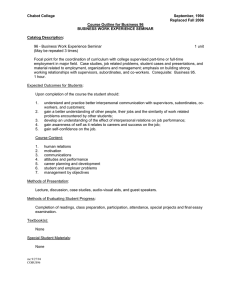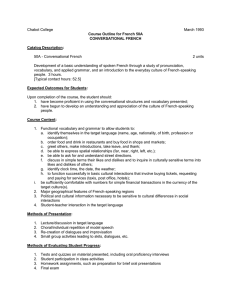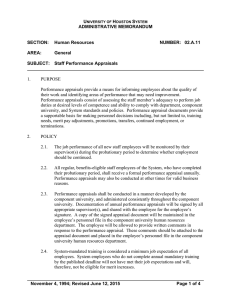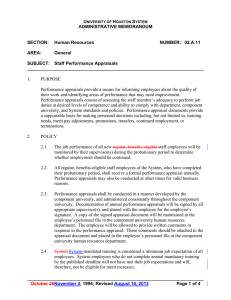Chabot College Fall 2006 – Skills for Supervisors
advertisement
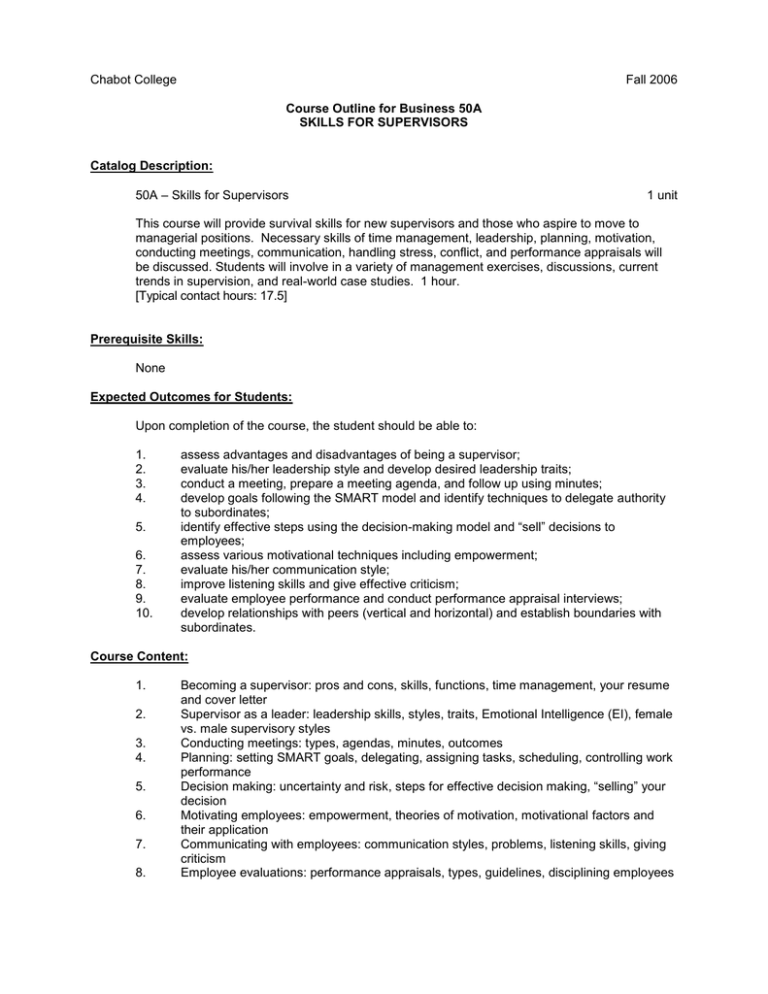
Chabot College Fall 2006 Course Outline for Business 50A SKILLS FOR SUPERVISORS Catalog Description: 50A – Skills for Supervisors 1 unit This course will provide survival skills for new supervisors and those who aspire to move to managerial positions. Necessary skills of time management, leadership, planning, motivation, conducting meetings, communication, handling stress, conflict, and performance appraisals will be discussed. Students will involve in a variety of management exercises, discussions, current trends in supervision, and real-world case studies. 1 hour. [Typical contact hours: 17.5] Prerequisite Skills: None Expected Outcomes for Students: Upon completion of the course, the student should be able to: 1. 2. 3. 4. 5. 6. 7. 8. 9. 10. assess advantages and disadvantages of being a supervisor; evaluate his/her leadership style and develop desired leadership traits; conduct a meeting, prepare a meeting agenda, and follow up using minutes; develop goals following the SMART model and identify techniques to delegate authority to subordinates; identify effective steps using the decision-making model and “sell” decisions to employees; assess various motivational techniques including empowerment; evaluate his/her communication style; improve listening skills and give effective criticism; evaluate employee performance and conduct performance appraisal interviews; develop relationships with peers (vertical and horizontal) and establish boundaries with subordinates. Course Content: 1. 2. 3. 4. 5. 6. 7. 8. Becoming a supervisor: pros and cons, skills, functions, time management, your resume and cover letter Supervisor as a leader: leadership skills, styles, traits, Emotional Intelligence (EI), female vs. male supervisory styles Conducting meetings: types, agendas, minutes, outcomes Planning: setting SMART goals, delegating, assigning tasks, scheduling, controlling work performance Decision making: uncertainty and risk, steps for effective decision making, “selling” your decision Motivating employees: empowerment, theories of motivation, motivational factors and their application Communicating with employees: communication styles, problems, listening skills, giving criticism Employee evaluations: performance appraisals, types, guidelines, disciplining employees Chabot College Course Outline for Business 50A, Page 2 Fall 2006 Methods of presentation: 1. 2. 3. 4. 5. Lecture Guest speakers Internet research Discussions and workshops Questionnaires and case studies Assignments and Methods of Evaluating Student Progress: 1. 2. Typical assignments a. Interview a manager at your workplace to identify his/her greatest challenges and most important rewards in being a manager. b. Collect a performance appraisal form used at your workplace, critically assess it for strengths and weakness; develop a plan for conducting a performance appraisal interview for an employee. c. Go to the website of eHow at http://www.ehow.com, select the category “Finance/Business,” then “Running a Business,” and browse the available articles. Choose one article and prepare a 3-5 minute presentation to the class. Evaluation methods a. Projects/papers b. Case analyses c. Exams d. Presentations e. Final exam Textbook(s) Typical: Skills for the First-Time Supervisor, Douglas Gordon, South-Western, 2006 Mastering Management Skills. A Manager’s Toolkit, Modular Edition, Ramon Aldag & Loren Kuzuhara, South-Western, 2005 Special Student Materials: None dk 10/05
